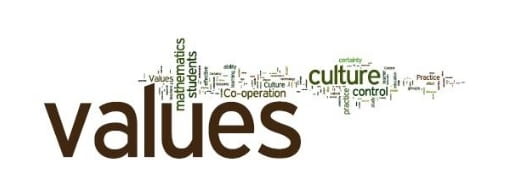Study 9: Mathematical Wellbeing
A research study which identifies the underlying values which when fulfilled, led to a sense of empowering mathematical wellbeing for learners.
You are welcomed to use the survey that had been designed and administered in this study. If you do, referencing may be made with the following:
Hill, J. L.. & Hunter, (2024). Diverse students’ mathematical wellbeing. New Zealand Journal of Educational Studies. https://doi.org/10.1007/s40841-024-00318-6
Hill, J.L., Kern, M.L., Seah, W.T., van Driel, J. (2024). To what extent are students fulfilling their values and thriving in mathematics education?—The case for Victoria, Australia. In Y. Dede, G. Marschall, & P. Clarkson. (Eds.) Values and valuing in mathematics education. Springer. https://doi.org/10.1007/978-981-99-9454-0_13
When values are acknowledged in the mathematics classroom, relationships are strengthened, students’ cultural identities are affirmed, students become more engaged, and ultimately, mathematics learning is enhanced
(Hill, Hunter & Hunter, 2019, p. 111)
Leader:
Dr Julia HILL (School of Education, RMIT)
Research teams:
| Jurisdiction | CI | Participants |
|---|---|---|
| Australia | Dr Julia HILL RMIT University | 488 |
| Hong Kong SAR | Assoc Prof Qiaoping ZHANG The Education Uni of Hong Kong | |
| New Zealand | Prof Jodie HUNTER Massey University | 32 500 |
| Türkiye | Assoc Prof Veysel Akçakın Uşak University | |
| United Kingdom | Asst Prof Gosia MARSCHALL University of Cambridge |
The MWB Measure of Mathematical Well-being
Instruments:
Questionnaire (English version)
Questionnaire (Young learners version, Chinese)
Questionnaire (Young learners version, English translated version)

 To stay informed of news, discussions and upcoming events, click ‘subscribe’ near the lower right corner below.
To stay informed of news, discussions and upcoming events, click ‘subscribe’ near the lower right corner below.